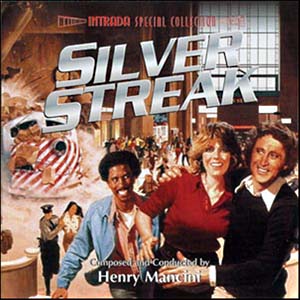Can Of Worms – Opened! UPDATE… Closed?
Senator Max Baucus, the guy who is acknowledged to the the “author” of the nearly 3,000 page puss saturated band-aid also known as the Health Care Reform bill, in response to a question of whether he actually read the final HCR bill, said this at a recent town hall:
“I don’t think you want me to waste my time to read every page of the health care bill. You know why? It’s statutory language,” Baucus said. “We hire experts.”
I for one would love to see who the “experts” were that crafted this bill. Can we see that please? You know, transparency and all that?
PS. I love this exchange. Here’s Baucus, trying to ensure that the HCR bill is a good thing:
“It’s not perfect, nothing’s perfect, but I’m telling you, ma’am, it’s a good start,” “Mark my words, several years from now you’re going to look back and say, ‘eh, maybe it isn’t so bad.’
Judy Matott, the person who asked the first question about reading the bill:
“Don’t think so,”
The Congress did this bass-ackwards. They passed it before they sold it to the public. Of course, they didn’t know what was in it because they hadn’t read it. But hey, it’s all good, right? Please, future congressmen, please take not of this fiasco, and don’t make this same mistake. I shouldn’t even have to say this, but, please, know what you’re passing before you pass it.
UPDATE: Fellow blogger and law student David Shraub of The Debate Link has offered a very worthy counterpoint to the “didn’t read the bill” complaint. He may have won me over:
No no no. ALL bills are impenetrable. There is literally no piece of legislation you could ever open up that would not be impenetrable, because bills are written in legislative language, which isn’t like normal, comprehensible English. That’s because the purpose of a bill isn’t to explain what it contains. The purpose of a bill is to amend, substitute, replace, rewrite, or otherwise modify US Code to accomplish the desired policy ends. These two goals (clearly articulating the bill’s contents, and modifying US Code) are completely incompatible with each other. It would be folly to try and use tools designed to accomplish the latter in order to achieve the former (and vice versa).
Hence, the “experts” here aren’t lobbyists, they are experts in turning policy language into legislative language….
I think it’s silly when people try to dress up substantive objections into procedural ones — and particularly profoundly silly procedural objections which fall apart for anyone who knows anything about the legislative process (and, since I assume at least some Senators and Representatives do know something about that process, isn’t a total hack). Laws are complicated. Laws that do a lot of things are really complicated. That, if it is a sin, is a non-partisan one. And there is no other way to write a bill in which the bill text would clearly tell you what the bill does.
To be clear — we should know what legislation does before it is voted on. I don’t dispute that at all. But “reading the bill” doesn’t accomplish that end. It’s a slogan, not a solution to anyone who actually knows how Congress operates.
Speaking as someone currently in law school, being a lawyer doesn’t really train you for this sort of thing (there are folks who specialize in this sort of thing, but it isn’t all lawyers). I can parse legislative language given enough time and access to Lexis, but simply “reading the bill” wouldn’t tell me, or really any other lawyer, anything. Again, that’s not their purpose. They’re not designed to be illuminative regarding the bill’s contents. Even if you are trained in reading legislative language, they’d still be really ineffective at serving that purpose. It’s not a matter of getting the requisite experience, it’s a matter of understanding what legislative text is supposed to do. It’s supposed to modify US code. That’s its only purpose.
(Maybe a better analogy would be telling someone to “read the programming code” if they want to understand how a computer program works. Yes, technically, it’s the primary source, but binary isn’t really designed to communicate information about its contents. You read the manual for that. The bill itself = the programming code. I don’t want Max Baucus reading that. I want him to read the manual.).
So, is this “didn’t read the bill” stuff much ado about nothing? Dave has me leaning in that direction as far as that criticism goes. But, I still stand by my assertion that this bill is a mess, makes the health care system worse, and never should have been passed.
PS. Then again, the ever brilliant Ed Schultz was able to read the bill and understand it with no problems, apparently.












